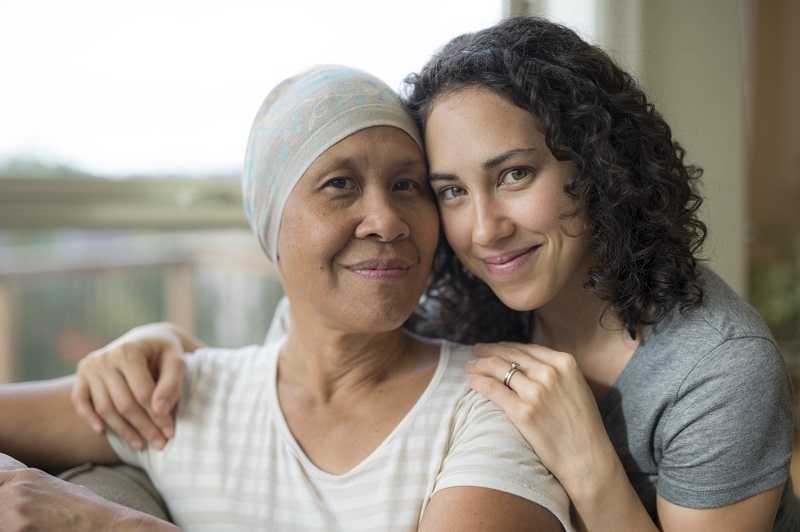Nursing Week Spotlight: palliative nursing

On the journey to the end, it helps to have a friend.
Palliative care is specialized medical care for patients with serious life-threatening illnesses that result in death. Palliative care nurses provide clinical care (i.e. pain management, IV therapy) and family/caregiver support to alleviate the symptoms and stress of a serious illness. The goal is to improve the quality of life for both the patient and their family in their journey to the end of life.
We chatted with three of our very own palliative nurses, Beth G. (a 5 year veteran with SHC), Nigel F. (a 17 year veteran with SHC) and Joan O. (a 9 year veteran with SHC) to get a sneak peek into the life of palliative nursing.
What do you love most about your job?
Beth: I love getting to know my patients and their families. It is a tremendous honour to be part of their support circle during such a difficult time. I also love the palliative team, my coworkers and managers are a wonderful group of people who I can rely on for support.
Nigel: Every day there is something different! There is never a dull day because I get to meet different people, encounter new clinical challenges and see the positive impacts I am making in the lives of my patients. I also love the great support I have from the program managers and my fellow colleagues.
Joan: The great team that we have here at Spectrum. Between my fellow nurses, program managers and PSWs we work together to give our patients the best home care services. We are a great team and family.
What’s the best part about being a palliative nurse?
Beth: It’s rewarding to be able to meet the needs of the patients. What is often a negative situation can be turned into a positive one when I can be a helpful part of the patient’s end-of-life journey.
Nigel: Funny enough, when I first started my community nursing career I was not a fan of palliative nursing because I felt like you put so much into the patient and in the end they pass away. Since working as a palliative nurse my perspective has completely changed. I’ve realized that even though there is death at the end of the journey, I can make that journey less painful for the patient and their family through clinical care and support. This allows the patient to focus their remaining time on their family. I see the positive impact that has on patients and it’s rewarding.
Joan: Getting to communicate and connect with my patients. In my job you not only provide clinical care but you develop connections with patients and their families that are truly worthwhile.
What’s the hardest part about being a palliative nurse?
Beth: Seeing patients in pain as well as seeing patients in their final days. It’s always heartbreaking to see the patient and family during the final days.
Nigel: The hardest part for me has been servicing patients with young children. Often the children are too young to understand what palliative care mean. They see me as a hero or healer who will make their parent or family member better. When their family member passes away I often feel like I’ve let them down in some way.
Joan: The hardest part is accepting that no matter what I do, the patient will eventually pass away. It’s extremely hard when the patient is young.
What’s one thing that you feel everyone should know or understand about palliative nursing?
Beth: Being a palliative nurse can be emotionally draining but also very rewarding.
Nigel: Things can change rapidly in this line of work. Patients and their families often expect a lot, the journey to end of life is new to them so they don’t know what to expect. A large part of my job is making sure I provide them with the right guidance and reassurance during this difficult journey.
Joan: Empathy is one of the most important things I can provide a patient. In situations where patients and their families are facing end of life, being compassionate can make all the difference in their overall experience.